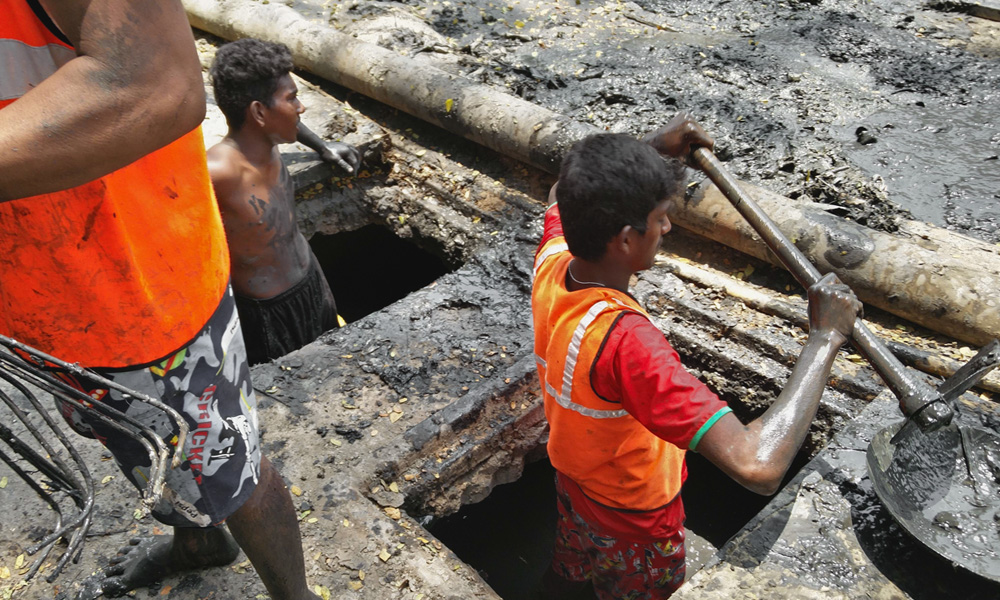
Image Credit: The Times of India
340 People Died While Cleaning Septic Tanks In Last Five Years: Government In Lok Sabha
Writer: Rakshitha R
Rakshitha an engineer turned passionate journalist with an inclination for poetry, creative writing, movies, fiction, mountains and seclusion. Not a part of the social process but existential.
India, 3 Feb 2021 11:40 AM GMT
Editor : Shubhendu Deshmukh |
Shubhendu, the quint essential news junky, the man who loves science and politics in equal measure and offers the complete contrast to it by being a fan of urdu poetry as well.
Creatives : Abhishek M
" An engineer by profession, Abhishek is the creative producer of the team, graphic designing is his passion and travelling his get away. In more ways than one, he makes the content visually appealing."
Uttar Pradesh has reported a maximum number of cases with 52 deaths followed by Tamil Nadu (43), Delhi (36), Maharashtra (34), and 31 each in Gujarat and Haryana.
Over 340 people died while cleaning sewers and septic tanks in the last five years according to the cases reported by the states and union territories up to December last year.
Uttar Pradesh has reported a maximum number of cases with 52 deaths followed by Tamil Nadu (43), Delhi (36), Maharashtra (34), and 31 each in Gujarat and Haryana, reported The Times of India.
In a written reply to a question, the numbers were shared by the Minister of Social Justice and Empowerment Ramdas Athawale, in Lok Sabha. Other states like Karnataka reported 24 cases of deaths while cleaning the septic tanks followed by Rajasthan (18), Punjab (17), Andhra Pradesh (16), West Bengal (13), and Bihar (8).
Chhattisgarh reported just one case followed by Madhya Pradesh, Tripura and Goa (two each), Chandigarh and Kerala (three each) and four cases in Telangana.
The employer who takes the contract to clean septic tanks/sewers is obliged to provide the safety gear to the workers, and take necessary precautions as prescribed in rules under "Prohibition of Employment as Manual Scavengers and their Rehabilitation Rules, 2013".
In 2014, the Supreme Court of India prohibited anyone from stepping inside septic tanks for cleaning as it contains high amounts of toxic gases. As per the central government rules, stepping inside the septic tank is permitted only in case of emergencies, that too, with adequate safety equipment.
A national policy for 'mechanised sanitation eco-system' has been formulated in consultation with the Ministry of Housing and Urban Affairs, Department of Drinking Water and Sanitation which envisages appointment of a sanitation authority in every district including response units in each municipality.
The minister also said that a scheme named, "Swachhata Udyami Yojana" is going to be implemented by the National Safai Karmacharis Finance and Development Corporation.
Under this scheme, loans are provided to manual scavengers, safai karamcharis engaged in hazardous cleaning and their dependents to procure mechanised equipment up to ₹5 lakh with a subsidy of 50 per cent.
Also Read: 'Temptation Of Sensationalist Hashtags', Says Govt As International Celebs Back Farmers' Protest
 All section
All section














